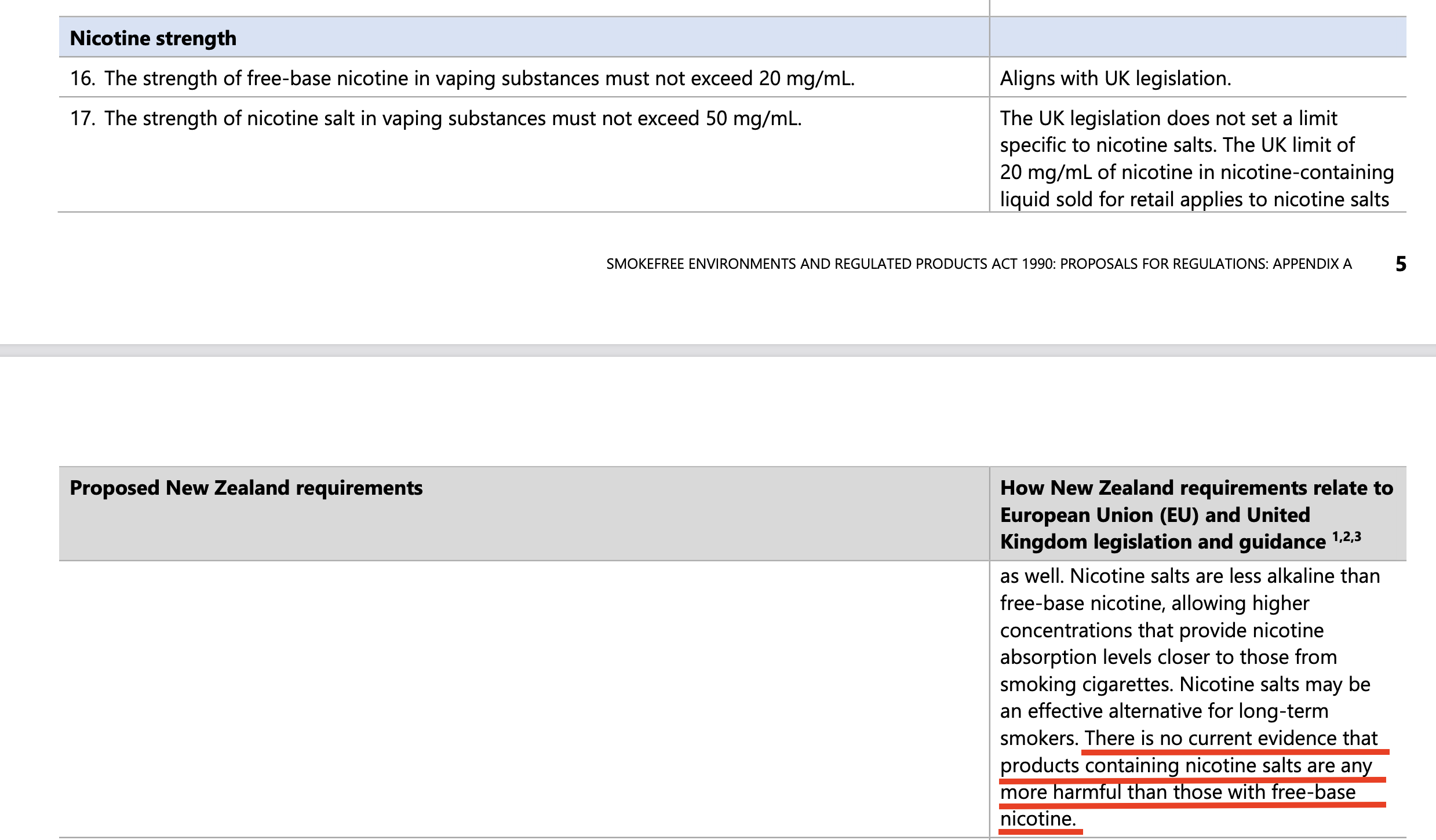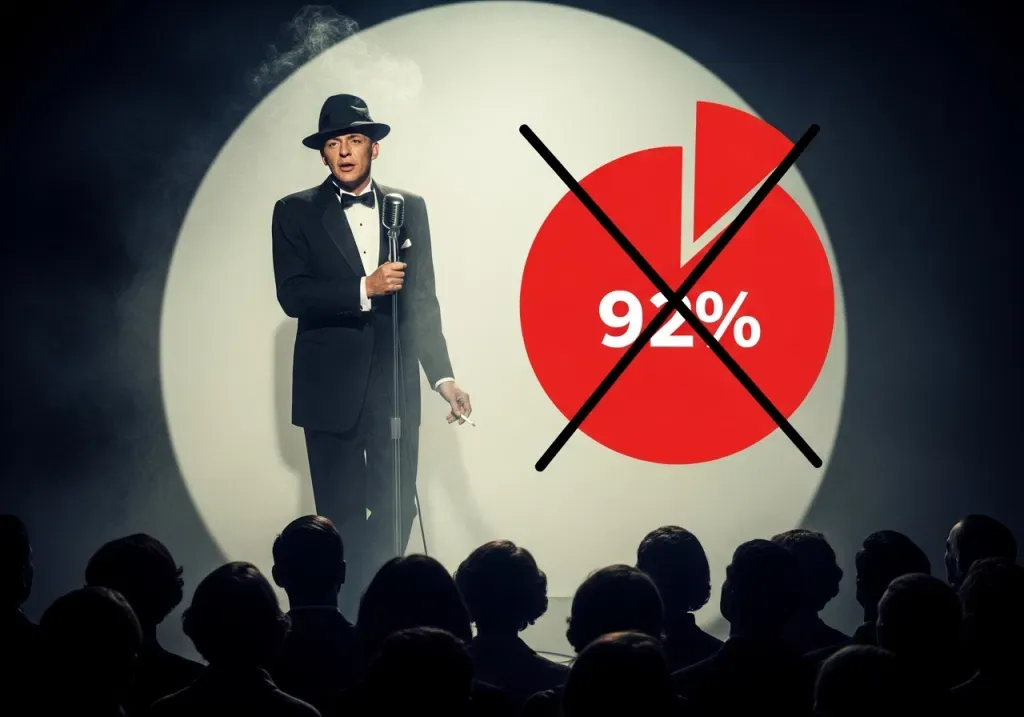Table of Contents
The vaping regulations promoted by Ayesha Verrall will ban most vaping products and probably force vaping stores to close. This is not the Minister’s intent, it is due to a conflict between the legislation and the proposed regulations.
The government is spending heavily on promoting vaping, while at the same time making it nearly impossible to sell vaping products that have successfully reduced smoking rates in New Zealand.
There is a clear inconsistency between the legislation and the regulation, providing the opportunity to pressure an inept and inexperienced minister who is out of her depth.
David Farrar has already alluded to this in a recent post.
This is what the vaping industry body is saying:
You can see the problems if you look through the Consultation’s ‘Appendix A’ document.
Problems in the Draft Regulations
The draft regulations have accidentally banned nicotine salt.
- Sections 15 & 34 sets out the prohibited ingredients and limits on trace levels that cannot be removed.
- This list of compounds has been expanded to incorporate the voluntary standards from many other countries.
- One of the prohibited ingredients are ‘STOT-Category 1 substances’.
- Benzoic Acid is classified as a STOT 1 substance.
- Without benzoic acid you can’t make nicotine salts. Effectively banning nicotine salts.
- This contradicts Section 17 of Appendix A where the MOH states that there’s no evidence that using nicotine salts is any more harmful than freebase nicotine and their intention to make it available.

A possible solution would be to remove the STOT-Category 1 requirement from Section 15.
Furthermore the draft regulations have accidentally banned mint and menthol flavours.
- Section 14 requires flavourings to be water-soluble because of concerns about lipid pneumonia.
- This issue is partly driven by the EVALI issue in the United States.
- Requiring flavourings to be water-soluble will inadvertently ban Peppermint Oil. A main ingredient in mint and menthol flavours.
- This would accidentally limit dairies to selling only tobacco flavoured e-cigarettes as no other flavours legally able to be sold in dairies would comply with Section 14.
A possible solution to correct this error would be to remove Section 14 and the MOH to develop an acceptable threshold for specific oil based flavouring agents that would minimise the risk of lipid pneumonia and be inserted to section 34.
The draft regulations also accidentally ban Heated Tobacco products.
- Section 34 contains a list of limits on compounds, metals and TSNA’s
- These lists and limits were developed exclusively for e-cigarettes by their authors. (This is noted by the MOH in the 2019 Regulatory Impact Statement on page 21 and 22.)
- Requiring heated tobacco to comply with limits that were developed for other products will ban the entire category.
- Heated tobacco cannot comply with these limits. Products containing tobacco have higher levels of TSNA’s and like all plants/root vegetables absorb metals from the soil/air around them.
- Requiring heated tobacco to comply with Section 34 goes against the Acts objectives and the intentions of the MOH’s consultation document where they have outlined their packaging requirements for heated tobacco.
The way to solve that would be to change the wording for Section 34 so that instead of it applying to ‘notifiable products’ it applies to ‘vaping substances’ (the definition for e-liquids in the Act) and recommend that ‘smokeless tobacco products’ comply with the relevant British Standards that were developed specifically for them.
The draft regulations also propose to ban a number of sugars that will greatly limit the palatability of vaping alternatives.
- Section 15(r) lists out prohibited sugars and sweeteners.
- Sugars are used as an ingredient in all e-liquid flavours. Banning sugars will significantly reduce the palatability of alternatives introducing a barrier to switching.
- Recently released studies concluded that the “Use of fruit and other sweet-flavoured e-liquids is positively related to smokers’ transition away from cigarettes.”
- The MOH hasn’t released any toxicological reason for banning sugars in e-liquids or risk comparison if this were a barrier that kept people smoking. This also goes against the intention of the Act which is to make flavours available.
The best way to solve that is to remove Section 15(r) from the list of prohibited ingredients to ensure product palatability.
David Farrar wondered whether Ayesha Verrall would be a Steven Joyce or a Margaret Wilson. It appears, based on these illogical errors in the legislation and regulations that she is heading inexorably towards being a Margaret Wilson.
If you enjoyed this article please share it so others can discover The BFD.









